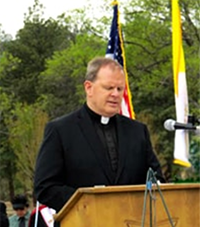It sure did seem that way this last week with all the demonstrations going on around the country against Israel, and against Jews in general—at Columbia U., USC, and even—I’m rather sad to say—my alma mater, UT Austin. Comparisons to Nazi Germany are, of course, obvious and rife (for those who DO know history), yet they remain quite pertinent … especially when activists are spray painting swastikas on walls and shouting “Death to Jews! Death to Israel!!” … not even a hundred years after the last time, but … now, and here. But adding also now: “Death to America!”.
To be honest, I’m anticipating with no little sadness probable activist funded general riots that may begin as spring warms the hemisphere. A new Kristallnacht, perhaps? For those hating on the U.S., one can’t help but wonder where is the Utopia which they hold to be a model for government and society, especially for this nation which is the third most populus—and one of the most culturally diverse—in the world. “End Capitalism!” is a constant refrain … as they enjoy the benefits of capitalism and freedom (an relevant observation of Milton Friedman here). But it’s interesting that few who rally for Communism/Socialism ever go to live under such a system for a while and see if it’s all rainbows and gumdrops as they seem to believe. As with so many theories/ideals, actual practice does not always—often does not—coincide very well.
But, on a more basic level, conflicting perceptions and priorities engender animosity, and even hatreds. Humans tend to vilify those who disagree with them, or in the quest for personal self-esteem, want to tear people down who may be perceived as “better” than us … whatever that really means. Again, we might recall those verses in (Catholic) scriptures in a more generalized context than simply religious: “…he is inconvenient to us and opposes our actions; he reproaches us … He became to us a reproof of our thoughts; the very sight of him is a burden to us, because his manner of life is unlike that of others … he avoids our ways as unclean … Let us test him with insult and torture, that we may find out how gentle he is, and make trial of his forbearance.’” (Wisdom 2:10-17,19)
“They are inconvenient to us.” That’s been the motivation for so many conflicts and depredations and death throughout history. “This or that group is using land/resources that OUR group ‘needs!’”—whether it be Persians or Romans in ancient history, Mongolian or Russian hordes, Europeans throughout all of the Americas and much of the world, even down to small inter-tribal conflicts.
And, of course, there is perennial “they are in the wrong religion!” rationale. We tend to point out Islam, but we Christians certainly fomented a lot of internecine wars and bigotries over it. The poor Jews seem to be figuratively—and often literally—beaten up throughout their entire history, by just about everybody. I mean, c’mon … assaulting Jewish students just trying to study at U.S. universities? Really?! Can we be more irrational?
And yet some Christians still … still … blame even today’s Jews collectively for Jesus’ crucifixion, demonstrating a remarkable misunderstanding/ignorance of Christian theology. The accurate belief is that ALL are responsible for that horror of millennia ago. Whenever WE do sin/evil, we are essentially reaching back through time, wielding the hammer, nailing Him to the cross.
Is it any wonder, then, that those who live and promote peace, self-discipline, kindness and charity, a measured life and harmonious co-existence are such rare figures revered in world history? … the Buddha, Confucius, Mahatma Ghandi, Mother Teresa, etc., and, pinnacle of all for Christians of course, Jesus, who we believe divine and thus far surpasses all in both example or teaching.
The reasonable person would then ask: “If the examples and teachings of all of these are so universally respected and admired, what is preventing ALL persons from recognizing that these are the best for not only themselves, but for all?!” Well, St. Paul puts it most succinctly: “ … the desires of the flesh are against the Spirit, and the desires of the Spirit are against the flesh; for these are opposed to each other, to prevent you from doing what you would.” (Galatians 5:17).
Well, we all know the power of the desires of the flesh—part of the human condition and of the “hard-wired” passions within us. Yet some are blessed with greater vision and utilize reason and will to the most laudable ends, while others (perhaps most) are less able (or willing) to curb the flesh for the higher pursuit of such selfless and universally beneficial ends. Maybe that’s why so few persons are so revered—they being stronger than the strong, wiser than the wise.
St. Thomas Aquinas wrote that because the highest faculty in Man is his reason, and as the divine is the highest of all subjects, the greatest work of Man is to contemplate the divine. So, what is most divine, and what are divine aspects for contemplation? We might recall St. Paul: “ … the fruit of the Spirit is love, joy, peace, patience, kindness, goodness, faithfulness, gentleness, self-control; against such there is no law. And those who belong to Christ Jesus have crucified the flesh with its passions and desires.” (Galatians 5:22-23) And these fruits of the Spirit are all encapsulated in His new commandment, gifted to His disciples on the very eve of His crucifixion: “A new commandment I give to you, that you love one another; even as I have loved you…” (John 13:24)
———–
“Sir, my concern is not whether God is on my side; my greatest concern is to be on God’s side, for God is always right.” (attributed to Abraham Lincoln)
Editor’s note: Rev. Glenn Jones is the Vicar General of the Archdiocese of Santa Fe and former pastor of Immaculate Heart of Mary Catholic Church in Los Alamos.


